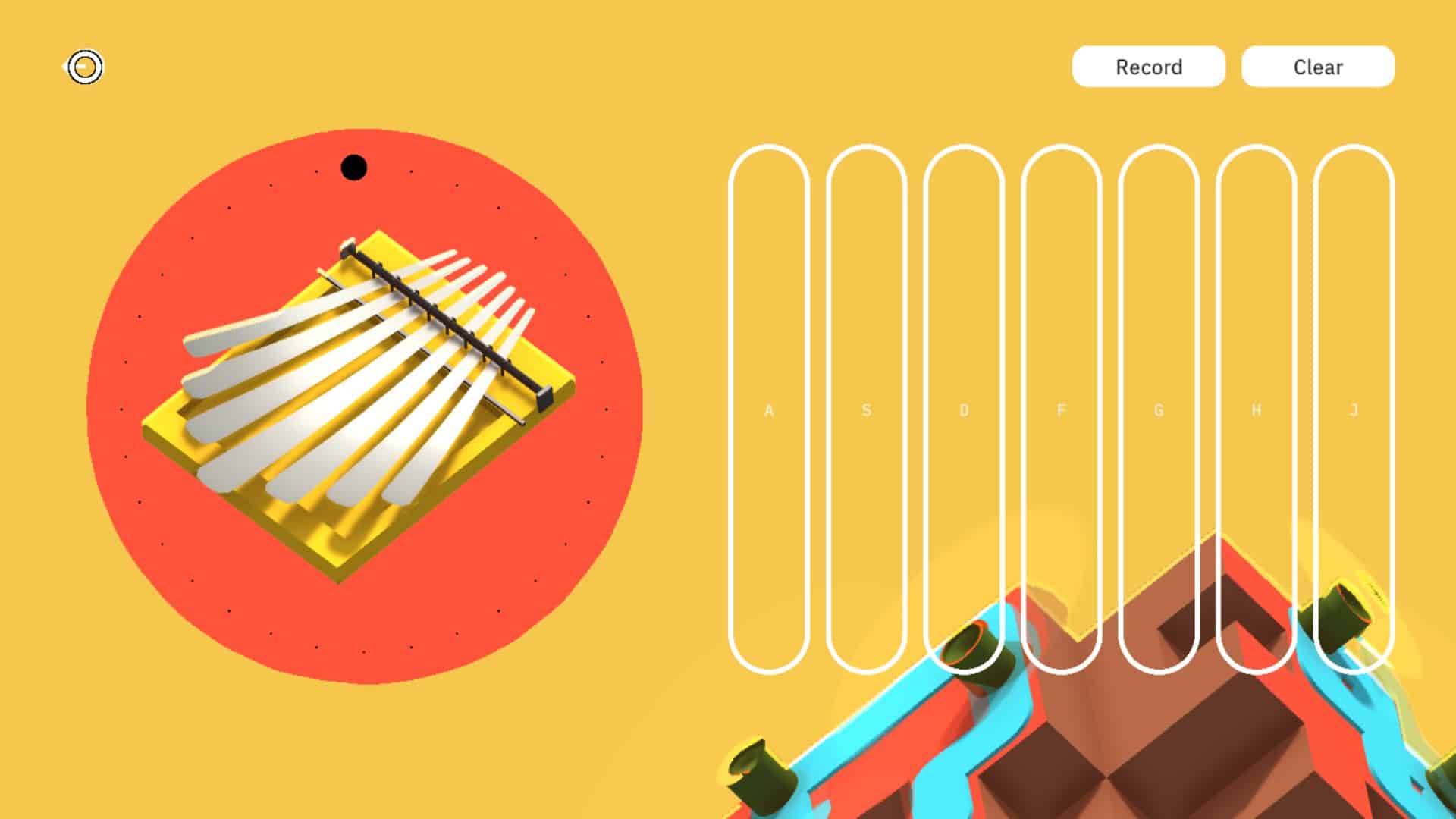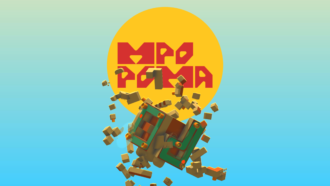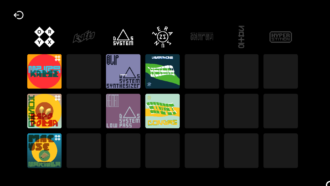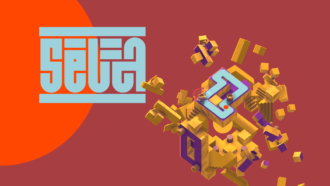Stuck in a rut listening to the same music genres over and over again? Want to bring some musical variation into your life? Well, the music puzzle game Rytmos may just be the answer you’ve been searching for! The game is all about exploring and learning about world music. It made me excited to hear new tracks from around the world, with a “spoonful of sugar” approach helping to introduce the player to different world music genres via puzzles, making the concept of learning fun.
Developed by Copenhagen indie studio Floppy Club, this puzzler presents world music as a galaxy of 7 rotating universes each representing a different aspect of that country’s music. These planets come in the form of six-sided floating cubes that include a number of pipes that you need to connect via a thick line. The line can never end on itself and all pipes must connect in order for you to advance in the game. If you’re really stuck, you can exit that puzzle and rotate the cube where other pipes are waiting to also be connected.
You may be asking – What is the deal with these pipes and what do they have to do with world music? Well, each pipe contains a single beat and when all are connected, the pipes produce a rhythm that is inspired by the music of a particular country. These countries include Japan, Germany, Indonesia and Ethiopia, each with its own colour scheme and instrument, specific to that country, that you earn once you complete one of the three planets in each “universe.” The 21 instruments range from the Zimbabwean Mbira which consists of metal tines on a wooden board that can be plucked, a synthesiser from Germany, and Congas from Cuba.
To record your own music using a combo of the instrument and the planet’s melodies, you can click on an icon on the top left of the main screen that is in the shape of a crate of records. This then takes you to each of the planets, which have been transformed into records with their own distinct covers. Clicking on one of these records will take you to a screen where the melody of that planet will make its way around the puzzle you’ve completed and that gives you control over the instrument specific to that country. You can then record your own unique melody with the powers of the pipes and instrument combined.
Accessing the musical-making elements can be a little difficult. A lot of the navigations within the game are very hit-and-miss. I would accidentally find areas of the game just by clicking through other areas. The game would really benefit from signposting more effectively in order to make the transitions from one aspect of the game to another less confusing and more fluid.
However, this is only one small blip amidst a number of gameplay and visual elements that makes the game a fun learning experience. One is the game’s art style, which I can only describe as modern, graphical, and plasticine in style. Colour tones are mixed so that they are one tonal shift away from being a disaster, but at their current hue, they look fun and funky. Gameplay is extremely easy too, with any level of players being able to embrace the simple loop of connecting the musical pipes together. I’ve recommended Rytmos to my friends who love electronic music and who aren’t gamers as I’m confident they will not find the gameplay too much of a steep learning curve.

Rytmos makes learning about world music fun, something that learning should ultimately be. When the player enters every puzzle, they are greeted with a number of paragraphs outlining the history of the music that the planet focuses on. It then scaffolds your understanding by presenting the puzzle planets, letting you become familiar with the melodies and then allowing you to play around with these melodies by way of the traditional instrument. All steps gradually teach you more and more about that country’s music.
Rytmos is a musical game that doesn’t require the player to have any gaming skills, leading to the game being accessible to all levels of gamers. The way that it presents music as this evolving, adaptable art form makes it an exciting, educational journey that anyone who is curious about world music can enjoy.











